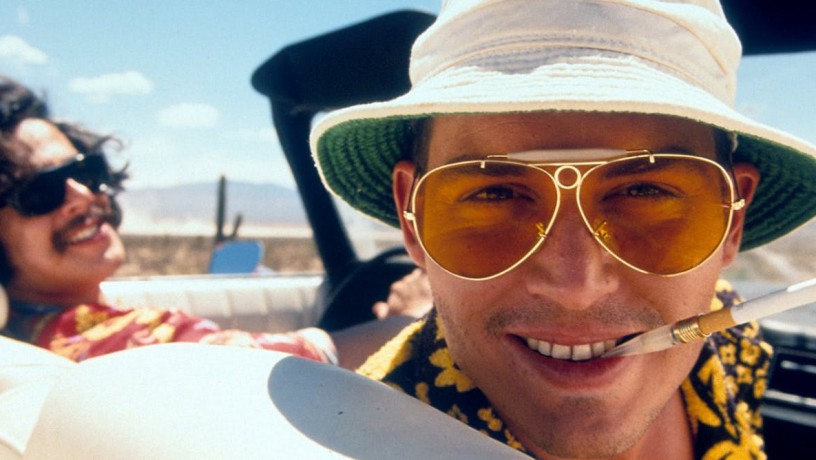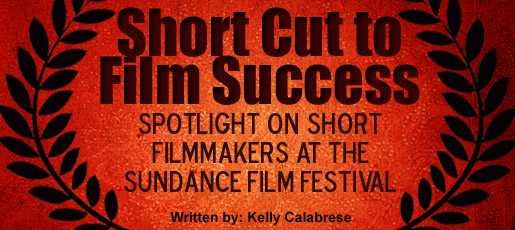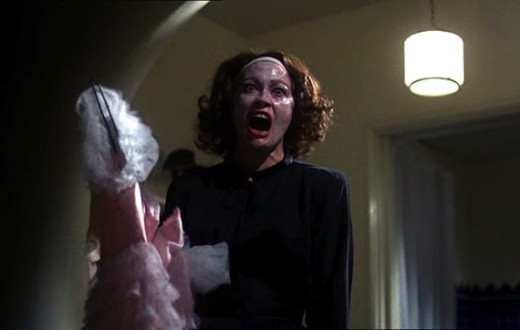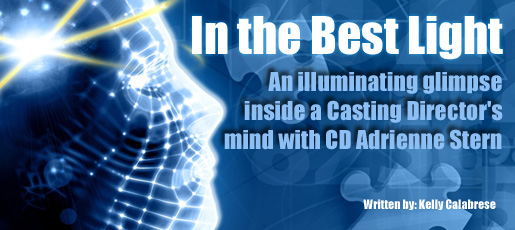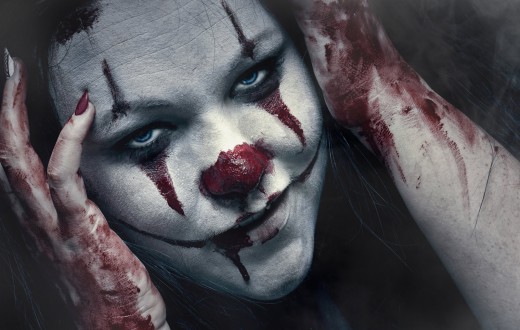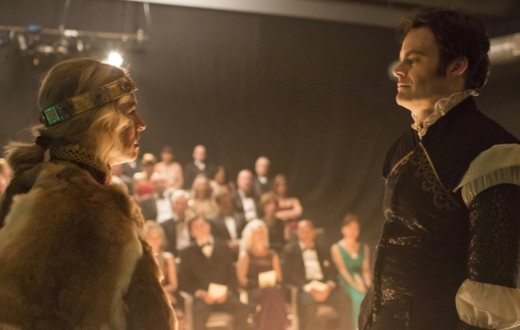As an actor, the quest to deliver a compelling and believable character often involves more than just mastering lines and understanding motivations. One aspect of physical appearance that can significantly impact the perception of a character is the choice of eyeglasses. The right pair of glasses can add depth, personality, and authenticity to a character, helping to convey their story and emotional state without words. In this article, we’ll explore how different types of glasses can shape a character and provide examples of famous actors in feature films who have used eyewear to enhance their roles.
The Significance of Eyeglasses in Characterization
Eyeglasses are more than just functional items; they are powerful tools in an actor’s arsenal to suggest a character’s personality, social status, profession, and even their emotional state. The style, shape, and size of eyewear can all contribute to the audience’s perception of a character.
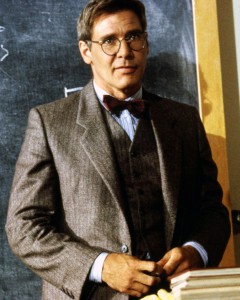 1. The Intellectual or Scholar
1. The Intellectual or Scholar
Round or oval glasses, often with a thin frame, are typically associated with intellectuals, scholars, or the “nerdy” archetype. These glasses suggest a character that is thoughtful, introspective, or studious. A famous example is Indiana Jones (played by Harrison Ford) in his professorial role, where his glasses add a touch of scholarly charm to his adventurous persona.
2. The Authority Figure
Square or rectangular glasses convey strength and stability, often used to depict characters in positions of authority or power. These glasses can give an air of seriousness and professionalism. A notable example is Gordon Gekko (played by Michael Douglas) in “Wall Street,” where his sharp, angular glasses underscore his ruthless business acumen.
3. The Creative or Free Spirit
Unusual shapes, vibrant colors, or distinctive designs in eyewear are often linked to artistic or unconventional characters. These glasses can signify creativity, eccentricity, or a bohemian lifestyle. Johnny Depp’s portrayal of Raoul Duke in “Fear and Loathing in Las Vegas” with his distinctive yellow-tinted aviator glasses perfectly encapsulates his wild, unhinged character. Another great example are the Ray-bans Tom Cruise wears in the classic film, Risky Business.
4. The Action Hero or Tough Character
Sunglasses, especially those with dark or mirrored lenses, are frequently used to portray cool, tough, or mysterious characters. They can add an element of mystery or detachment, shielding the character’s emotions. Think of Arnold Schwarzenegger’s iconic sunglasses in “The Terminator,” which complement his stoic, intimidating presence.
5. The Vintage Enthusiast or Period Character
Eyeglasses specific to a particular era can help ground a character in a certain time period, enhancing authenticity and providing visual cues about the setting. For example, the cat-eye glasses worn by Cate Blanchett in “Carol” immediately evoke the 1950s, reflecting the style and attitudes of the era.
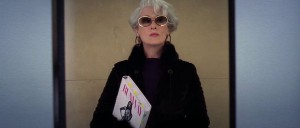 6. The Sophisticate or High-Class Character
6. The Sophisticate or High-Class Character
Thin metal frames or designer glasses can convey sophistication, wealth, or a high social status. They’re often associated with characters who are polished, cultured, or part of the elite. An example is Meryl Streep’s character Miranda Priestly in “The Devil Wears Prada,” whose designer glasses underscore her role as a powerful, fashion-forward magazine editor.
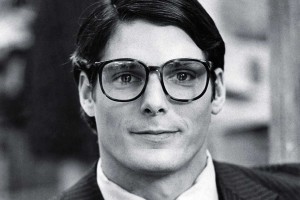 7. The Undercover or Incognito Character
7. The Undercover or Incognito Character
Eyeglasses with nondescript, plain designs can help a character blend in or hide their true identity, perfect for undercover agents or characters wanting to go unnoticed. Clark Kent’s classic glasses in the Superman stories allow him to maintain his disguise as a mild-mannered reporter, distinct from his superhero persona.
8. The Quirky or Comical Character
Oversized or brightly colored frames can add a humorous or quirky element, perfect for comedic characters or those meant to provide comic relief. An example is the character of Milton Waddams from “Office Space,” played by Stephen Root, whose thick, black-framed glasses amplify his awkward and eccentric personality.
9. The Retro or Nostalgic Character
Vintage glasses can evoke nostalgia or convey a connection to a past era, ideal for characters with a sense of history or a penchant for retro aesthetics. For instance, the character of Dr. Emmett Brown in “Back to the Future,” played by Christopher Lloyd, wears retro, 1950s-style glasses that complement his eccentric and inventive personality.
10. The Mysterious or Enigmatic Character
Tinted lenses can add an air of mystery or ambiguity, making it harder to read the character’s thoughts and emotions. This style can be suitable for mysterious or enigmatic characters whose motives or backgrounds are unclear. A great example is the character of John Goodman’s Walter Sobchak in “The Big Lebowski,” whose yellow-tinted glasses add to his unpredictable and volatile nature.
11. The Tech-Savvy or Futuristic Character
Modern, sleek eyewear with advanced technology features or unconventional designs can signify a character who is tech-savvy, futuristic, or involved in science fiction settings. Think of Tony Stark (Iron Man) in the Marvel Cinematic Universe, whose innovative glasses reflect his status as a genius inventor and tech innovator.
12. The Vulnerable or Sensitive Character
Thin, delicate frames or glasses that seem slightly too large for the face can convey vulnerability, sensitivity, or innocence. They can make a character appear more open, earnest, or fragile. An example is the character of Sam in “The Lord of the Rings,” where his simple, wire-frame glasses accentuate his down-to-earth, sincere nature.
13. The Hardened Detective or Noir Character
Classic, no-nonsense frames, often in dark colors, can be associated with gritty, no-nonsense characters like detectives or individuals from noir films. These glasses suggest a pragmatic, tough personality, often with a hint of cynicism or world-weariness. Jake Gittes, played by Jack Nicholson in “Chinatown,” is a quintessential example, with his straightforward, utilitarian glasses that match his detective persona.
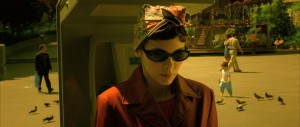 14. The Romantic or Dreamer
14. The Romantic or Dreamer
Soft, rounded frames in light colors or with subtle embellishments can evoke a sense of romance, dreaminess, or gentleness. They’re fitting for characters who are poetic, love-stricken, or idealistic. An example is the character of Amélie Poulain in “Amélie,” whose whimsical, round glasses complement her quirky, imaginative, and romantic nature.
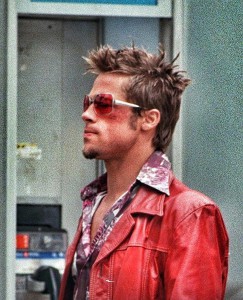 15. The Rebel or Outcast
15. The Rebel or Outcast
Chunky, bold frames or unconventional eyewear styles can symbolize a rebellious spirit or an outcast status. They help depict characters who defy norms, stand out from the crowd, or embrace their unique identity. A character like Tyler Durden in “Fight Club” (though he doesn’t wear glasses) could be imagined with such a style to emphasize his rebellious and anarchistic traits.
Tips for Actors
- Understand Your Character: Analyze your character’s background, profession, personality, and era to choose appropriate eyewear.
- Collaborate with Costume Designers: Work closely with costume designers to select glasses that complement your character’s overall look.
- Practice with the Glasses: Ensure you’re comfortable wearing the glasses during your performance. Practice moving and expressing emotions with them.
- Use Glasses to Enhance Non-Verbal Communication: Remember that your eyes are expressive tools. Use the glasses to amplify or conceal your character’s emotions as needed.
- Buy lots of different types of glasses for your regular life! Reading glasses to wild variations of sun glasses. You’ll see how your personality changes with the glasses you wear.
In conclusion, eyeglasses can be a potent element in an actor’s toolkit, offering a subtle yet powerful way to convey a character’s identity and nuances. By thoughtfully selecting and utilizing eyewear, actors can add an extra layer of depth and authenticity to their performances, making their characters more relatable and memorable to the audience.

